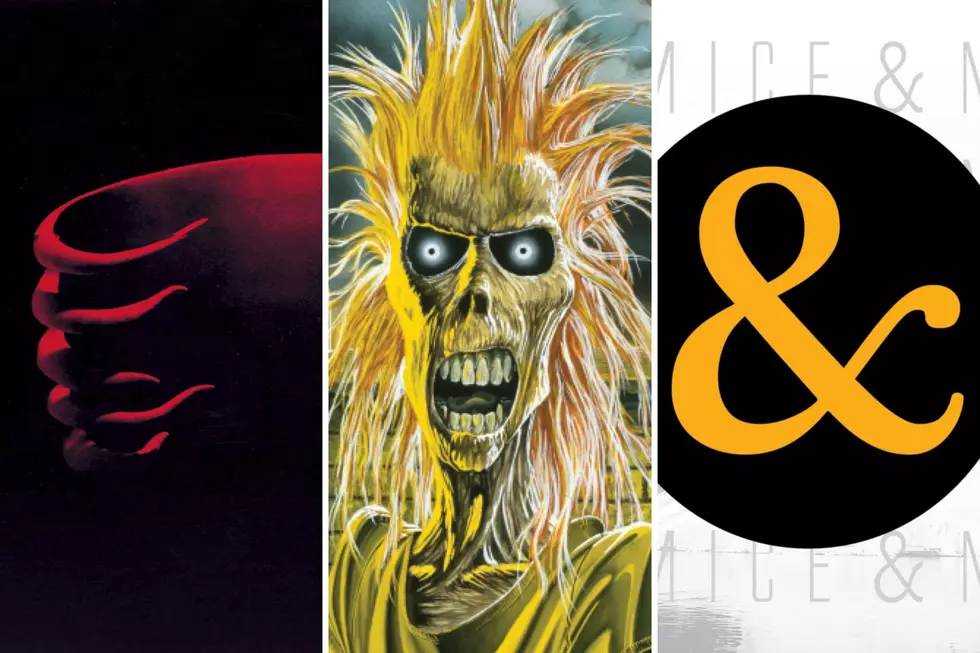
2022 Eurovision Song Contest Features Late Upset, Voting Questions + Bizarre Wolf-Banana Song
The 2022 Eurovision Song Contest is in the books, with the Ukraine's Kalush Orchestra taking home the top prize for their song "Stefania," edging out the U.K.'s Sam Ryder after public vote pushed them past the "Spaceman" singer who led after the national jury voting.
This year's edition took place in Turin, Italy, after Maneskin secured the country as the host by winning the 2021 edition of the Eurovision Song Contest. Controversy surrounded this year's competition even before it began as Russia was not allowed to compete due to the current war against Ukraine. But according to the BBC, there was almost a Russian presence as the Russian Killnet hacker group targeted the first semi-final as well as Saturday's grand finale in an attempt to sway the voting. However, police in Italy say their cybersecurity division was able to block the attack.
Eurovision organizers also reported "irregular voting patterns" amongst the juries from six countries, which meant that the jury scores in the second semi-final and grand final were replaced with a "substitute aggregated result" calculated by the organizers. Further details were not revealed.
As has been the case in many years, the Eurovision Song Contest provided performances ranging from the stellar (Ukraine's Kalush Orchestra and U.K.'s Sam Ryder) to the supremely bizarre (Norway's Subwoolfer).
Subwoolfer, an entrant from Norway, definitely grabbed the attention of viewers with their song "Give That Wolf a Banana," with the musicians onstage sporting wolf costumes, and belting such bizarre lines as, "See where you're going but I don't know where you've been / Is that saliva or blood dripping off your chin / If you don't like the name Keith, Imma call you Jim" over electro beats, before delving into lyrics about giving a wolf a banana before it eats their grandmother. The performance even earned a shout out on this week's Last Week Tonight With John Oliver on HBO.
Subwoolfer, "Give That Wolf a Banana"
But while Subwoolfer generated their share of buzz, the competition came down to the U.K.'s Sam Ryder against Ukraine's Kalush Orchestra. Ryder, who toured as a guitarist and sang for Blessed By a Broken Heart and later fronted rock band Close Your Eyes, put his upper register to the test, showing off his rock vocal chops with the soaring song "Spaceman."
Ryder has found a second shot at fame over the pandemic becoming one of the more popular artists on TikTok, and he used the song he co-wrote with Amy Wadge (Ed Sheeran) and Max Wolfgang to sing in the competition.
Sam Ryder, "Spaceman"
After the initial jury tally from all the countries, Ryder sat atop the standings and looked like he had a pretty solid shot at winning it all. But the votes still remained close enough that the public vote would ultimately decide who took home the title for 2022.
It was there that Ukraine's Kalush Orchestra catapulted ahead of Ryder to take the title with their song "Stefania," which started with prominent vocal harmonizing leading into a clap-along moment for the audience, before turning into a rap-infused banger. The song was meant as a tribute to band member Oleh's mother, who heard it for the first time when she saw her son's band perform in the pre-selection process for Eurovision ahead of the competition.
The win was celebrated on social media by Ukrainian president Volodymyr Zelensky, who wrote, "Our courage impresses the world, our music conquers Europe!," and later adding, "Next year Ukraine will host Eurovision! For the third time in its history. And, I believe, not the last. We will do our best to one day host the participants and guests of Eurovision in Ukrainian Mariupol. Free, peaceful, rebuilt!"
Kalush Orchestra, "Stefania"
Though Ryder finished second, which was one of the best finishes for the U.K. in years, he was still beaming after the results were announced, telling BBC News, "The whole team held themselves with such credit and such positivity, being in that room and witnessing just this tangible energy of light was incredible."
The 'Big 4' of 10 Rock + Punk Subgenres
More From Loudwire









